What is a Skin Barrier and Why is it so Important?
Have you ever over-exfoliated in the name of radiance and your skin completely freaked out—it felt dry, tight or aggravated? That discomfort you were experiencing was likely your skin barrier screaming for help. Sure, a good moisture sesh can work wonders to visibly calm a seemingly angry skin barrier, but there’s so much more to caring for your barrier than just hydration. “Keeping your skin barrier strong and resilient is critical to the overall health of your skin,” says Lizz Starr, Executive Director of Product Development at Origins.
“Skin barrier health” has rapidly replaced “glowing skin” as the new skincare buzz word. And rightfully so—as it turns out, you can't truly achieve glowing skin without a healthy skin barrier. So, put down the exfoliator and step away from the AHAs (for now) and discover how to better care for your barrier. Your glowing skin will thank you.
What is a Skin Barrier and how does it function?
When you hear the words “skin barrier” you probably imagine a protective shield hovering over your skin—maybe even a coat of armor. Well, you’re not entirely wrong. “Your skin barrier is the outermost layer of your skin, also called the protective barrier, or if you want to get super technical, the stratum corneum,” says Starr. “It’s made up of dead skin cells, lipids and fats, which essentially act like a shield, keeping the good stuff, like moisture, in and the bad stuff, like skin-damaging pollutants, out.”
To better understand skin barrier function, think of your barrier as a brick wall: the bricks are the skin cells and the mortar is the lipid layer holding the wall, or your cells, together. When the brick wall is strong and structural, moisture and other beneficial elements (think vitamins, proteins and antioxidants) are locked in. If the wall weakens and becomes compromised, it develops cracks, which allows moisture to seep out and skin-damaging pollutants to slip in. When this barrier breakdown happens, your skin is more vulnerable to aging.
What causes a damaged Skin Barrier?
A damaged skin barrier can be caused by everyday life. Weather, stress and simply washing your face can all compromise your skin barrier in one way or another. These are the five most common culprits:
Extreme Climates
Cold air, whipping winds and excessively dry indoor and outdoor heat can all cause a barrier breakdown. “Certain types of weather conditions can dry out the skin, compromising the integrity of your skin barrier,” says Martin Keh, PhD Manager, Clinical and Scientific Affairs. Your skin barrier prevents transepidermal water loss and helps keep your skin hydrated. Harsh, extreme weather can suck your skin dry, which can lead to significant moisture loss and ultimately a compromised skin barrier.
Internal Stress
That spreadsheet that’s due at 8am is breaking down your barrier. That’s because stress induced from the pressure of life (like your job) can create a snowball effect on your skin. “A surge in stress hormones can disrupt collagen, decrease lipids and increase water loss, all leading to a compromised skin barrier,” says Rocky Graziose, Origins Biotech and Discovery Labs.
Environmental Pollutants
The second you step foot out the door, it's your skin against the environment. “Pollutants, like smoke, ozone and volatile organic compounds, are constantly knocking at your skin barrier door,” says Starr. “And if they successfully enter, they increase oxidative stress, which is the number one cause of premature skin aging.”
Over Exfoliating
Exfoliating is an excellent and necessary treatment for your skin. It not only removes the dead skin cells that are dulling your complexion, but it also paves the way for better absorption of your skincare products. However, too much exfoliation can affect your skin barrier. While the goal of exfoliation is to slough off the dead skin cells, those cells are also what keeps your skin protected—they help make up your skin barrier. “When you over-exfoliate, you remove all the cells and the lipids surrounding the cells so your skin becomes more vulnerable,”' says Keh. “The result is usually some type of discomfort or irritation.” Exfoliating two times a week (or less if your skin is on the super sensitive side) may be all your skin needs.
Harsh Ingredients
Giving your skin a deep clean feels great, but your skin barrier may feel differently. Certain surfactants in facial cleansers can strip your skin of its natural oils and, in turn, dry out and irritate your skin. If your skin tends to feel tight after cleansing, consider swapping your current cleanser for something a little more comforting, like a cream-based cleanser, which tends to be more hydrating.
How can you tell if you have a damaged Skin Barrier?
The truth is, most of us have experienced damage to our skin barrier at some point. The tell tale signs your skin barrier is compromised: skin feels dry and tight or you’re experiencing redness and irritation. Your skin may even itch or flake, and possibly sting when applying your treatment products. When any or all of the above happens, it’s most likely a sign your skin is telling you its barrier is compromised.
How do you restore your skin barrier?
Your skin barrier can self-restore over time, but it's highly beneficial to give it a jump start so you’re not living with dry, flaky, uncomfortable skin. Applying skin barrier products to help restore–and protect—your barrier is a great place to start.
Comfort your barrier with skin barrier products
Skin barrier products work because they’re typically loaded with ceramides, lipids and other skin-soothing and moisture-binding actives to help calm, comfort and hydrate your skin. We love our new Mega-Mushroom Restorative Skin Concentrate, which is formulated to strengthen your barrier in one use and prevent future damage by helping support skin’s ability to retain moisture.
Use a gentle cleanser and don’t over exfoliate
Creamy cleansers are your skin’s best friend. They’re comforting and calming, and are typically void of ingredients that strip the skin of its natural oils. Look for cleansers containing soothing ingredients like mushrooms (our favorite skin-soother) and ceramides (the moisture-boosters). One of our favorites is Mega-Mushroom Skin Relief Face Cleanser with Cordyceps and Reishi Mushroom. Also, be sure to put the brakes on exfoliation until your barrier is restored, then consider limiting it to two times a week, tops.
Reduce your stress
Easier said than done, but trying to avoid high stress is best. One of our favorite ways to clear the mind and reduce tension is through mediation. Even five minutes a day can help increase focus, improve sleep, reduce stress and promote a more positive physical and emotional outlook. Check out our beginner's guide on how to meditate here.
Barrier Breakthroughs
Our Skin Barrier products are formulated to help soothe, visibly reduce redness associated with skin barrier damage, and restore barrier strength.
NEW! Mega-Mushroom Restorative Skin Concentrate
Developed for skin sending out an SOS, this multi-action, comforting concentrate rapidly soothes irritated-looking skin, helps improve red, sensitized-looking skin, and supports a compromised skin barrier in three ways. Ideal for those times when skin needs extra care or a reset.
Mega-Mushroom Soothing Treatment Lotion
An Origins customer favorite, Treatment Lotion—now with 10x more Reishi Mushroom— weightlessly hydrates as it visibly soothes dry, red, irritated-looking skin. The watery texture sinks right in, helping to strengthen skin’s barrier and activate its natural defenses against external aggressors that can lead to early signs of aging.
Mega-Mushroom Skin Relief Face Cleanser
This ultra-gentle, milky cleanser is formulated with Cordyceps and Reishi Mushrooms, Ginger, Turmeric and Holy Basil, as well as skin-soothing Licorice Extract. It quickly rinses away makeup, dirt, debris and impurities without upsetting skin's naturally protective lipid balance. Even highly sensitive skin stays calm as you cleanse.
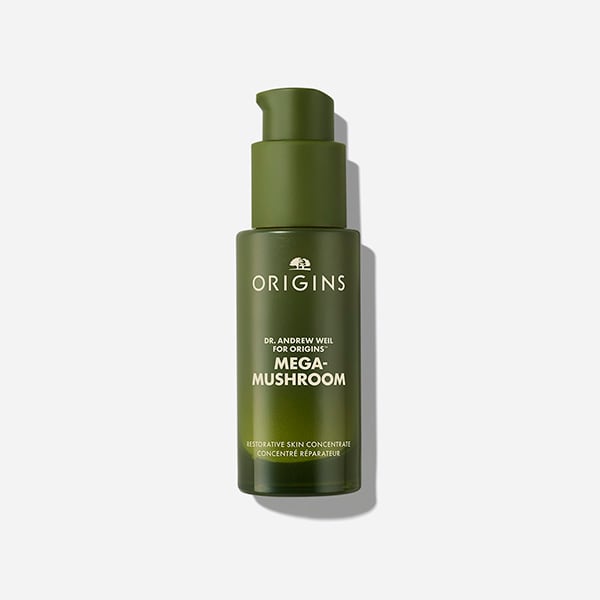
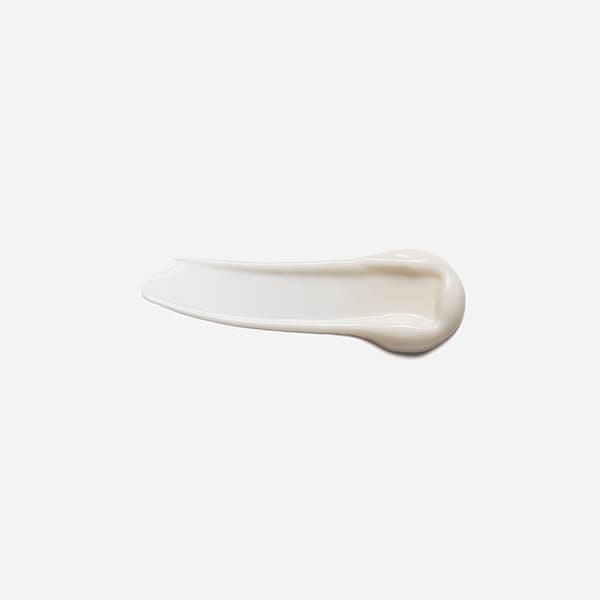
Dr. Andrew Weil for Origins™ Mega-Mushroom Barrier Rescue Concentrated Serum
Benefit: Skin Barrier Rescue & Repair, Rapid Redness Reduction, Suitable Post Derm Procedure
$54.00 $72.00
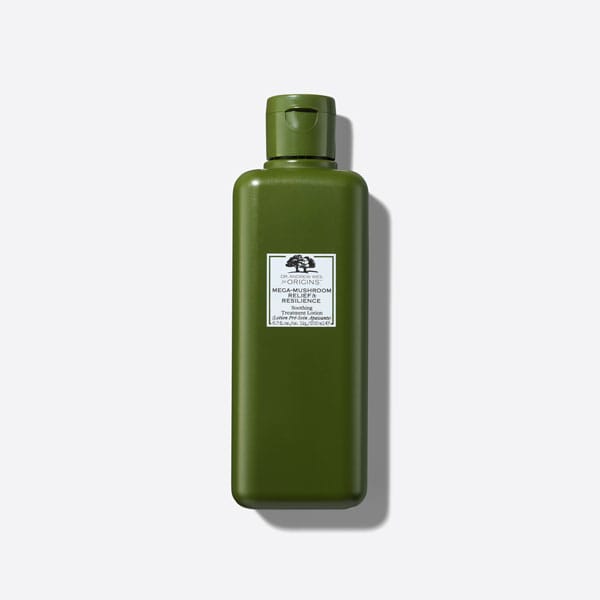
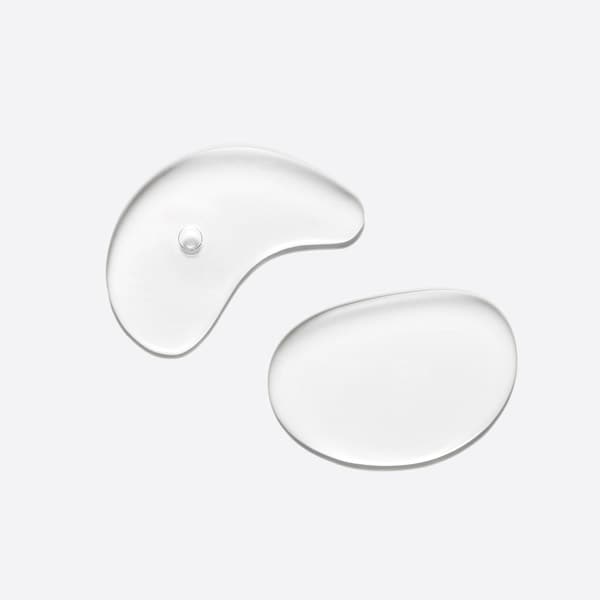
Dr. Andrew Weil for Origins™ Mega-Mushroom Relief & Resilience Soothing Treatment Lotion
Benefit: Healing Hydration, Visibly Minimize Pores & Reduce Redness, Strengthen Skin Barrier
$36.00 $48.00
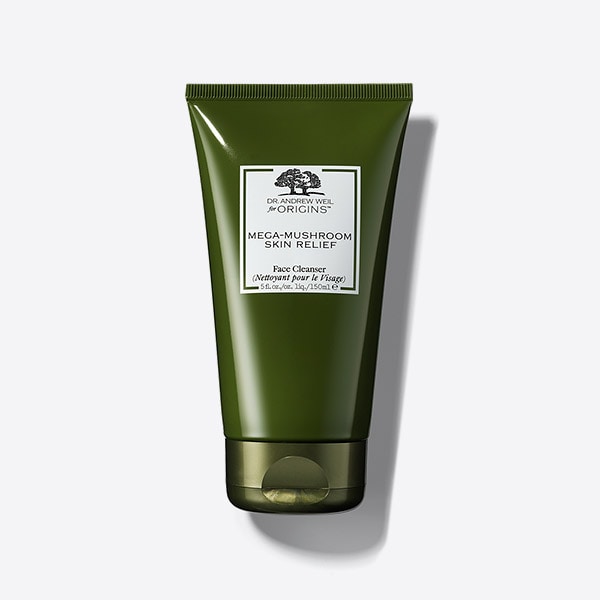
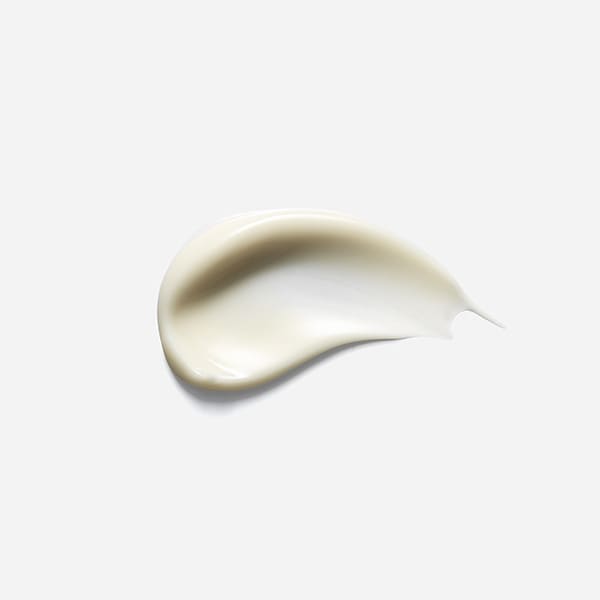
Dr. Andrew Weil for Origins™ Mega-Mushroom Skin Relief Face Cleanser
Benefit: Cleanse & Reduce Redness
$31.50 $42.00